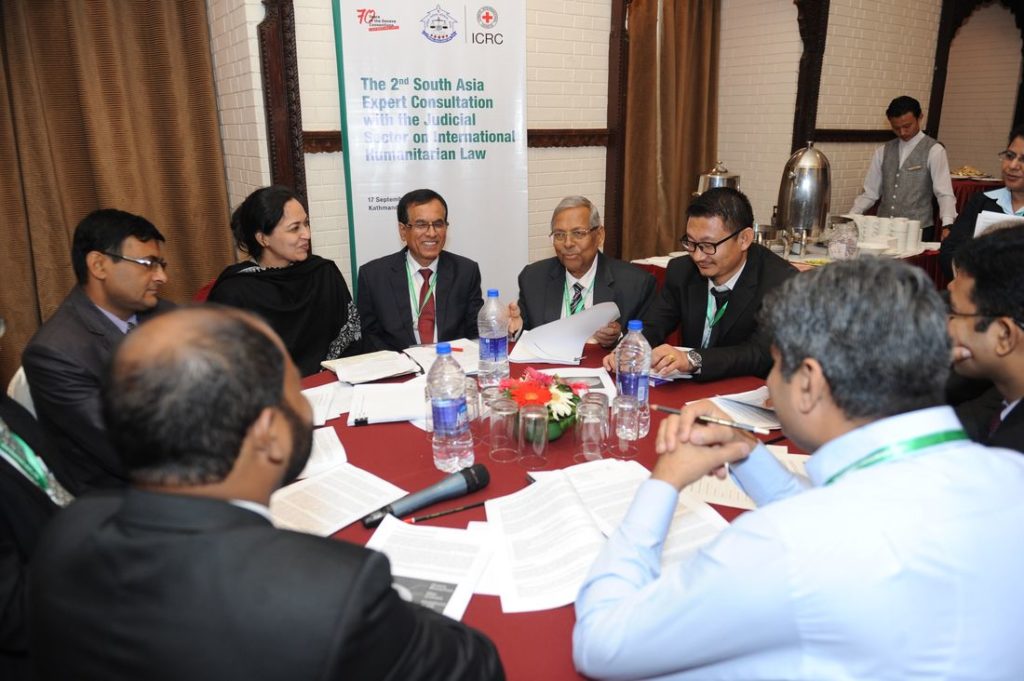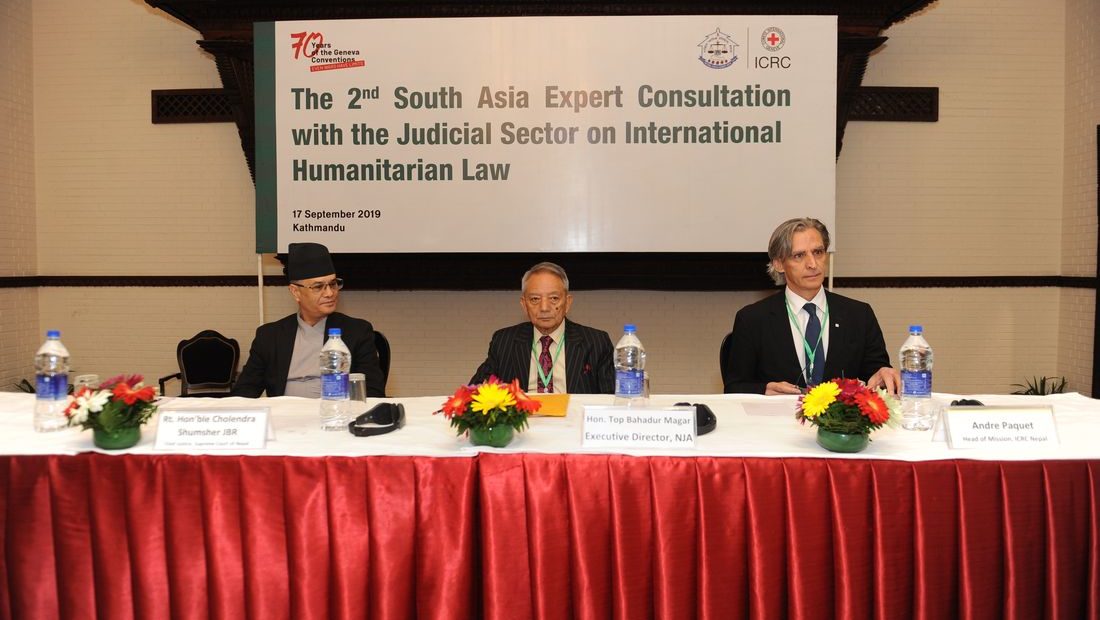The International Committee of the Red Cross (ICRC) together with National Judicial Academy (NJA) of Nepal organised the 2nd South Asian Expert Exchange on International Humanitarian Law (IHL) with the Judicial Sector in Kathmandu on 17 September 2019. Twenty representatives of the national judicial training institutions from Bangladesh, Bhutan, India, Iran, Maldives, Pakistan, Nepal, and Sri Lanka took part in the exchange.
The objective of the exchange was to report on the implementation of the Kathmandu declaration of 2016, which committed the signatories to integrate IHL training into the professional development curricula of the judiciary. The declaration has had a high level of integration in the region with many interesting examples of training, outreach, curricula development and research papers being shared.
The Rt. Hon. Cholendra Shumsher JBR, the Chief Justice of Nepal, affirmed, “I believe that these consultation programmes will help to exchange practices and experiences on the application of IHL to develop common understanding, to frame training for judges and judicial human resources and to enhance mutual cooperation”.
The exchange also provided an opportunity to reflect on successes and to share ideas to overcome challenges that had been encountered; and to share new tools and resources designed for use by the judicial sector, while reflecting on remaining needs within the region. The gathering undertook a review of the ICRC’s draft guidance tool for the judiciary, providing valuable insight which will be used to improve the tool, and proposed the creation of a cadre of IHL experts comprising retired members of the judiciary, who could be deployed throughout the region to undertake high level IHL training programmes for senior judges.
Addressing the opening ceremony, ICRC Head of Mission in Nepal André Paquet said, “IHL is of concern to all States, not only the States at war. We need all States to commit to IHL to reinforce its respect wherever applicable. The wars have limits and the complexities of today’s conflicts must not weaken our commitment for the law. The Judiciary is mandated to impose sanctions for none respect of the law. In that respect, the role of the Judiciary is vital to ensure that wars have limits”.

Participants reflect on successes and share ideas to overcome challenges that had been encountered. ©ICRC
The forum also provided an opportunity to mark the 70th anniversary of the Geneva Conventions. Justice Asoka de Silva, retired Chief Justice of Sri Lanka and former Judge of the ICTR, addressed the gathering on ’70 years of protection, and the role of the judiciary in developing IHL’. He said, “The role of the judiciary is critical. It can have grave impact on the degree of the applicability of the international humanitarian laws such as the Geneva Conventions. Judicial activism has shown great results, however, its application is always subject to practical circumstances.”
Top Bahadur Magar, executive director, NJA Nepal, said, “I hope this regional consultation meeting will be a step ahead from the last meeting in term of expanding our knowledge or ideas on IHL and will also help us to build up significant partnership among us for our future journey. I think that this 2nd Regional Expert Consultative Meeting on IHL has been becoming instrumental to drive all the participating countries to look into the emerging jurisprudence developed so far in the area of international humanitarian law with our past experiences. In addition, I also hope that the expert consultative meeting will also help to identify other areas of cooperation and collaboration among us to further strengthen partnership in the future.”
The first expert exchange culminated in the adoption of the Kathmandu Declaration, which expressed a commitment to promote and integrate IHL into the training curricula of the judiciary of South Asia. The 2nd consultation concluded with a reiterance of this commitment, alongside a desire to continue to find opportunities to work together across the region.


